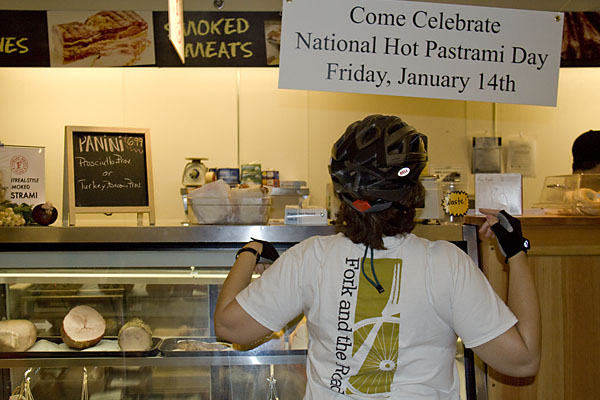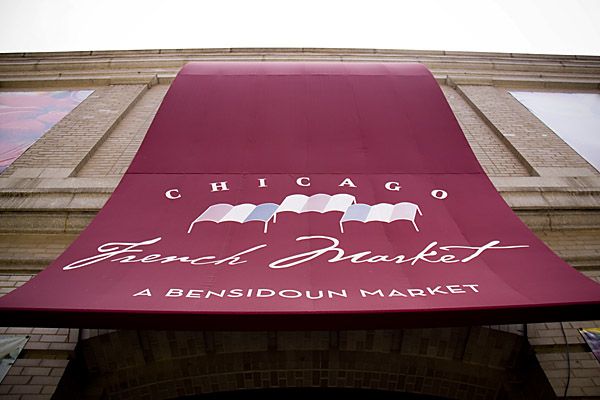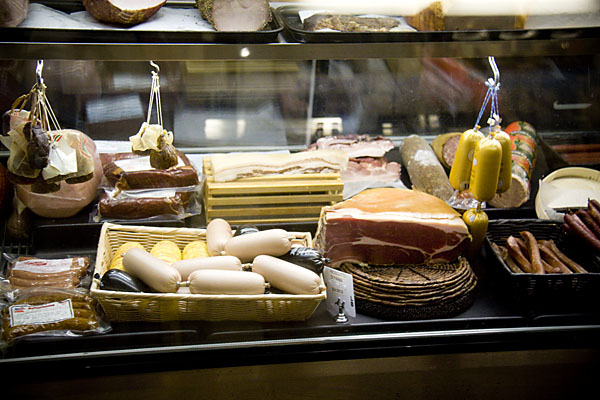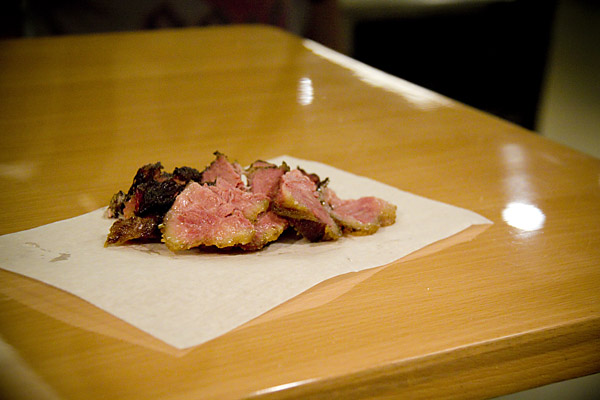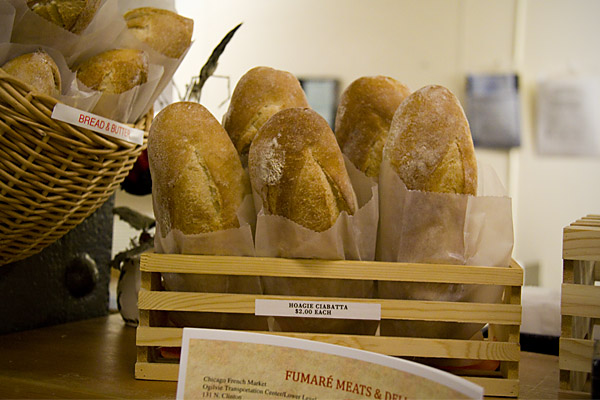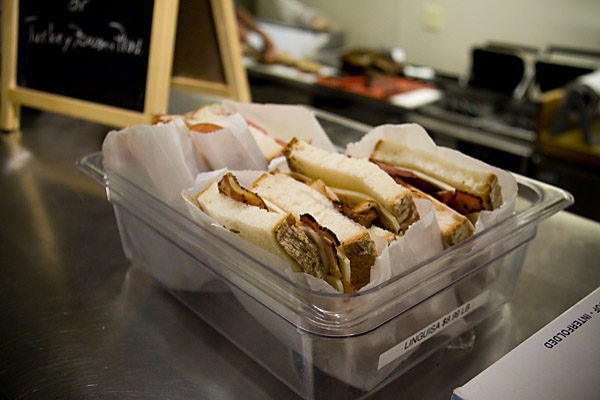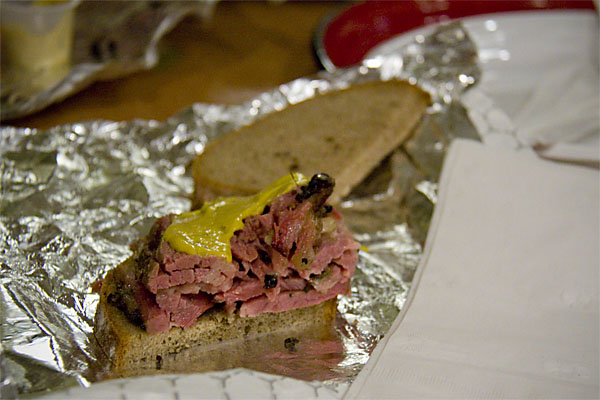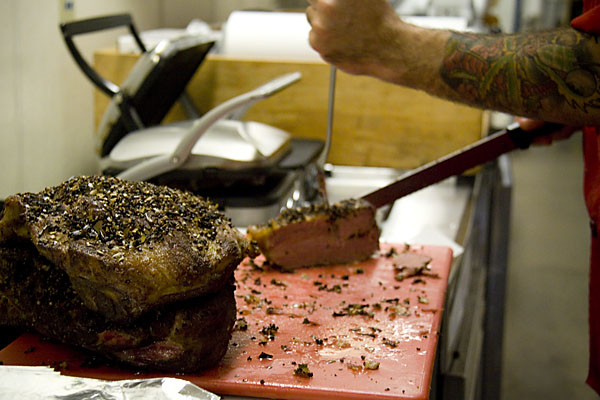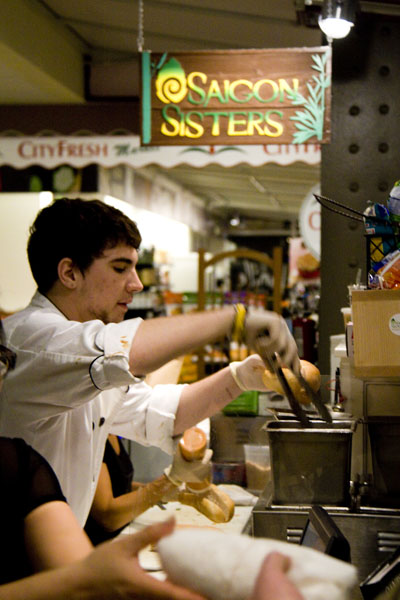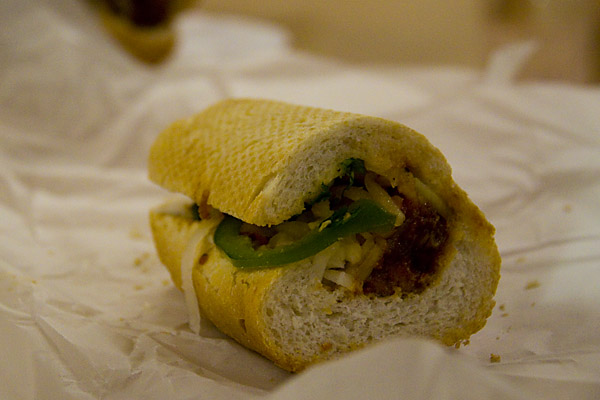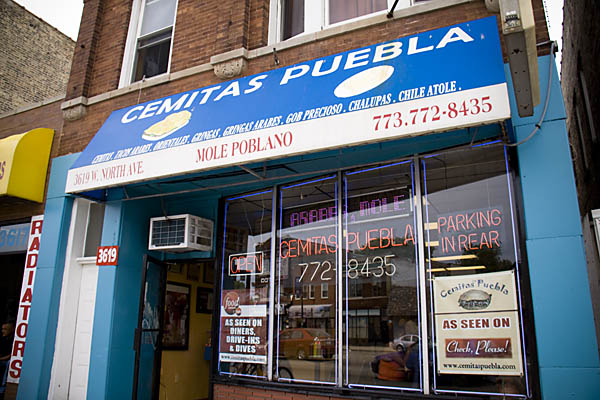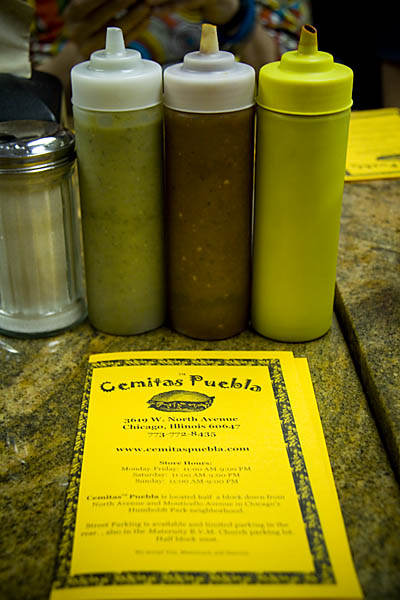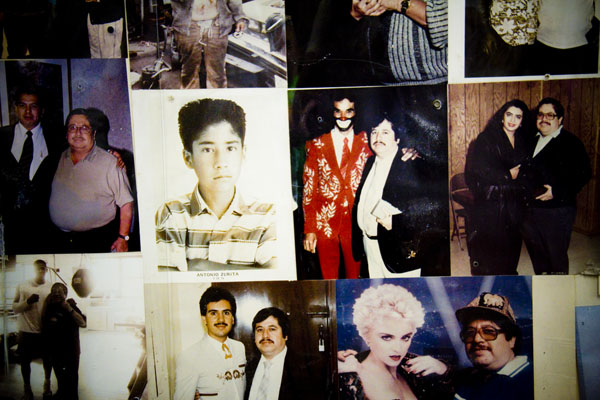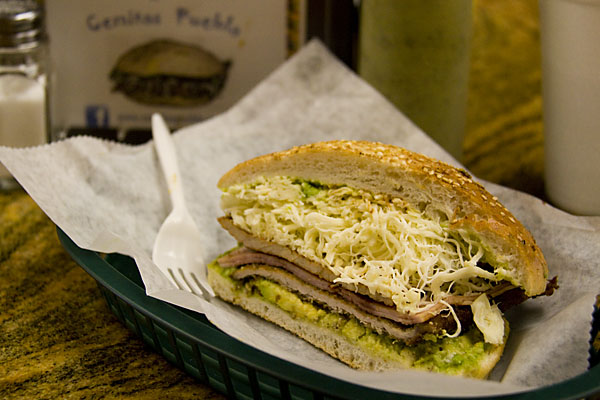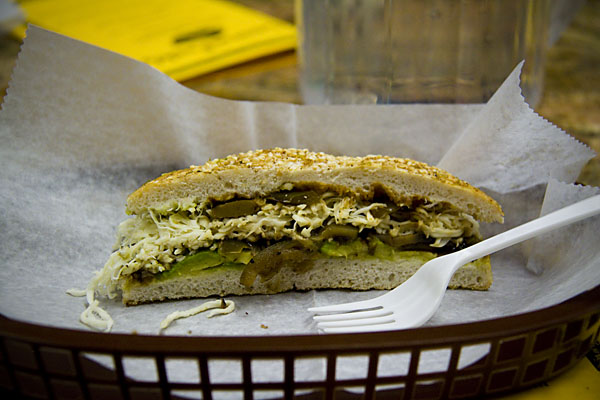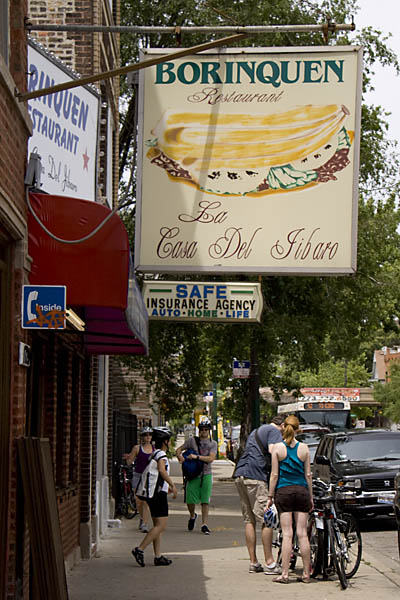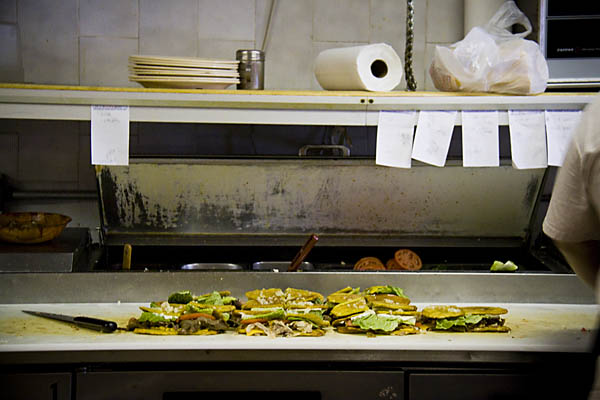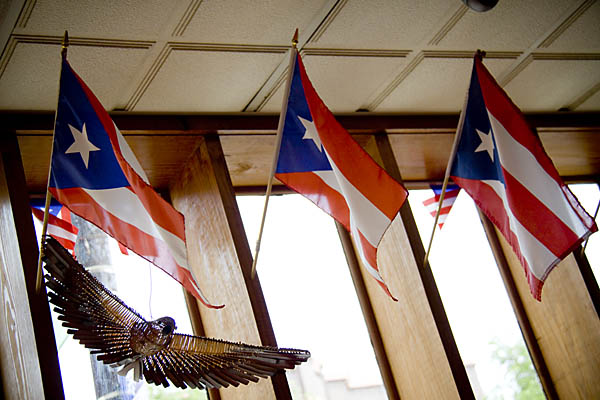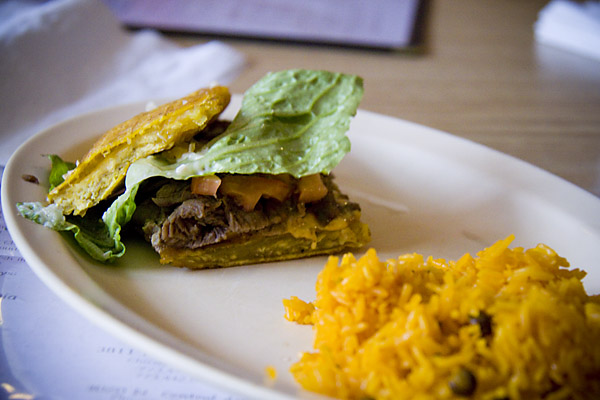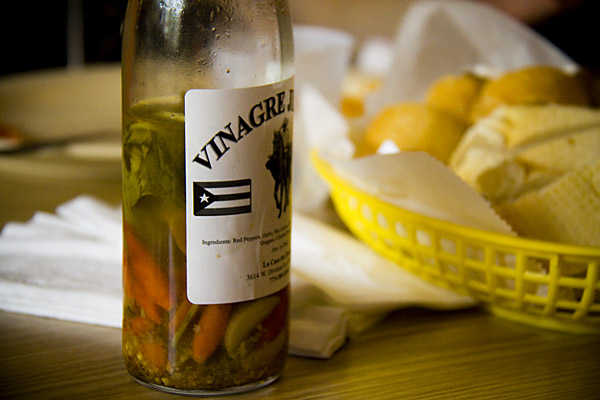Significant Sandwiches: Fork and the Road's 'Wich Way Bike Tour
By Roger Kamholz in Food on Jun 30, 2011 9:00PM
Back on Monday we shared news of the 2011 season of Fork and the Road, run by gastro-cyclists Dimitra Tasiouras and Sharon Bautista. Now, to borrow a phrase from the sporting press, let's go inside the numbers of Fork's all-new bicycle-based sandwich tour of Chicago, winkingly named 'Wich Way. (Don't you wish you lived on that street?) The route sprawls 13 miles, the menu encompasses the cuisines of three countries, and the eats consist of four sizable half-sandwiches. If you'll grant us the latitude to call all that one meal, then the four-hour-long 'Wich Way tour - which debuted this past Saturday - is perhaps the biggest (and surely the broadest) we've ever eaten.
During their tasty off-season research, Tasiouras and Bautista scouted local paragons of sandwichana, with special attention paid to how different cultures have interpreted the sandwich's basic parameters. And riders don't typically know what eats they have in store for them until the tour departs. (Spoiler alert.)
'Wich Way begins in the Loop and two-wheels it west on Randolph. The first destination of is the Chicago French Market, adjacent to Ogilvie Transportation Center (131 North Clinton Street). There our group of 12 or so paid at visit to Dick McCracken, who runs the Fumare Meats counter. To kick off our eating extravaganza, McCracken brought out a pile of what he called "faux tenderloin" for us to sample. This inexpensive cut (from nowhere near the loin) nicely mimics the qualities of the pricey stuff. In fact, it was delicious; we could have had a morsel more, but it was just a prelude to the main event: a sandwich stuffed with Fumare's specialty, Montreal-style pastrami. Two slices of soft rye bread cradled the goods, which Fumare cures with lots of peppercorns and other spices and then slices by hand - the traditional Montreal way. With the recommended slap of yellow mustard, we were off to a very good, impossibly tender start.
With our appetites whetted, stop two was happily reachable by foot. At the Saigon Sisters counter within the French Market we met proprietor Suu Nguyen, who introduced us to the Vietnamese meatball bánh mì - pork meatballs, basil, scallion, ginger and daikon slaw, kissed with Sriracha chili sauce and wrapped in French bread. The punchy play of sweet, savory, heat and fresh herbs was addictive. But no time to languish, back to the bikes!
We rode northwest toward Humboldt Park, rebuilding our appetites. About 5 1/2 miles later, we locked up on a block dotted with auto bodies and barbershops in front of Cemitas Puebla (3619 West North Avenue). Among its menu of traditional Poblano dishes is the Cemita, the Mexican restaurant's namesake sandwich. Owner Antonio Anteliz - who is pictured on the walls with dozens of guests going back years - explained what makes a Cemita: The sandwich starts with a special kind of Mexican sesame-seed bread; add to that a choice of meat, avocado, chipotle peppers and a whole lot of shredded Oaxacan cheese. (Items like the Cemita Arabe bear the influence Lebanese immigrants have had on the cuisine of Anteliz's native Puebla, Mexico.) The Fork ladies had singled out the Atomica (of "Diners, Drive-Ins and Dives" fame), which includes not one but three kinds of meat: breaded Milanesa, Carne Enchilada and Jamón. The barrage of flavors and textures was only made better by the salsas and sauces on the tables. (Try them all.) In the weeks ahead, papalo (an herb Tasiouras described as "cilantro on steroids") from Anteliz's garden will make its seasonal appearance, too, lending the Cemitas yet another bold flavor. We may have to go back.
After polishing off the stupendous Atomica with gradually diminishing gusto, we returned to the streets for the penultimate journey. In less than two miles, we stood before Borinquen Restaurant, birthplace of the jibarito (1720 North California Avenue). Borinquen's founder and the creator of the jibarito, Peter Figueroa, greeted our group as the plates of jibaritos arrived, generously accompanied by rice with pigeon peas. This local gift to Puerto Rican gastronomy consists of two plantains - flattened into patties and twice fried - that bookend roasted meat, lettuce, tomato and a tangy sauce. Easily the guiltiest pleasure of the ride, the jibarito is rich, hearty, no-nonsense grub: big, honest and deeply satisfying flavors; a meal even at half size. Good thing it was a five-mile ride back to the Loop.
Tasiouras and Bautista did an excellent job making the tour informative, fun, delicious, surprising and safe. Our best words of advice for embarking on a Fork and the Road Tour: Go hungry.
